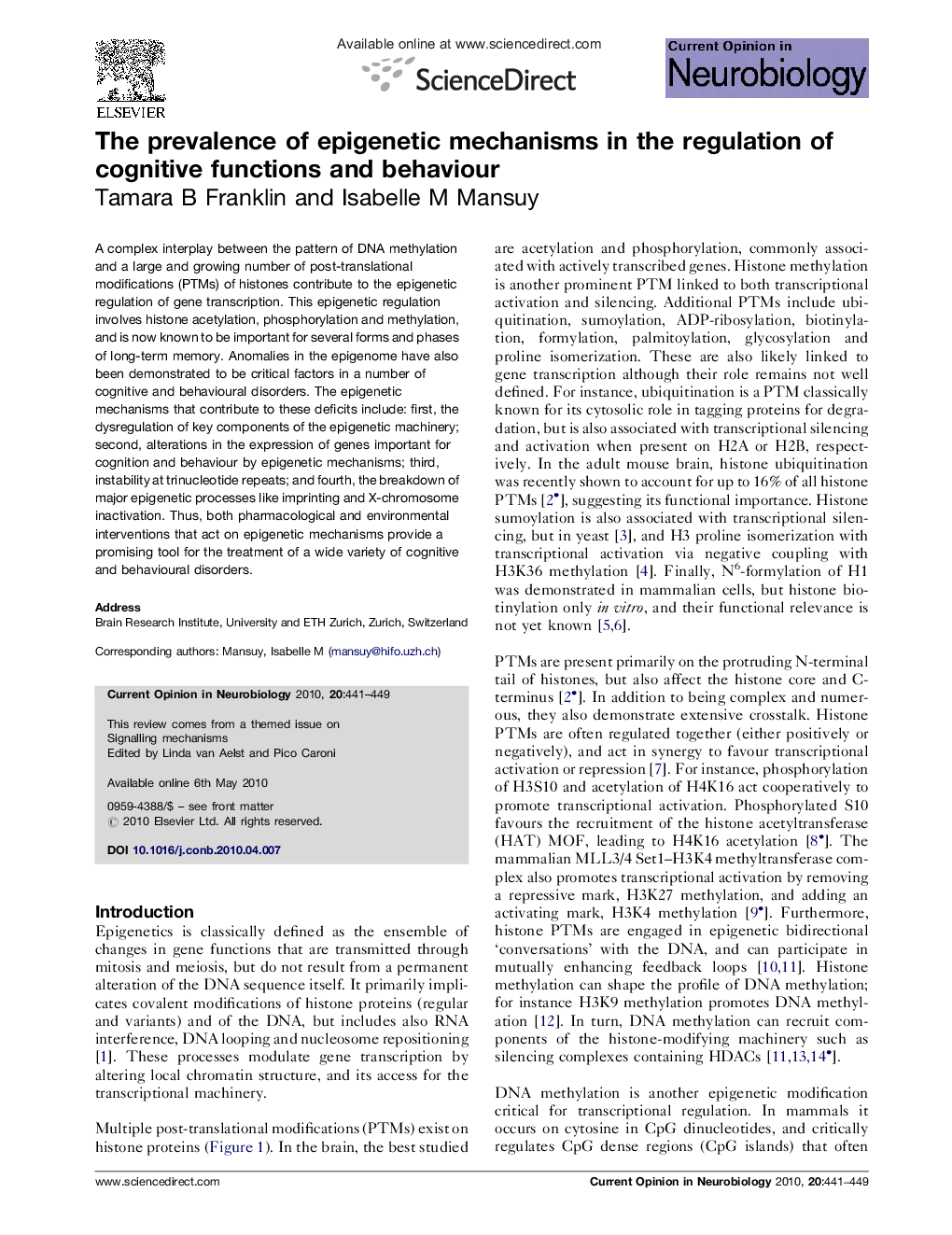| Article ID | Journal | Published Year | Pages | File Type |
|---|---|---|---|---|
| 4334388 | Current Opinion in Neurobiology | 2010 | 9 Pages |
A complex interplay between the pattern of DNA methylation and a large and growing number of post-translational modifications (PTMs) of histones contribute to the epigenetic regulation of gene transcription. This epigenetic regulation involves histone acetylation, phosphorylation and methylation, and is now known to be important for several forms and phases of long-term memory. Anomalies in the epigenome have also been demonstrated to be critical factors in a number of cognitive and behavioural disorders. The epigenetic mechanisms that contribute to these deficits include: first, the dysregulation of key components of the epigenetic machinery; second, alterations in the expression of genes important for cognition and behaviour by epigenetic mechanisms; third, instability at trinucleotide repeats; and fourth, the breakdown of major epigenetic processes like imprinting and X-chromosome inactivation. Thus, both pharmacological and environmental interventions that act on epigenetic mechanisms provide a promising tool for the treatment of a wide variety of cognitive and behavioural disorders.
